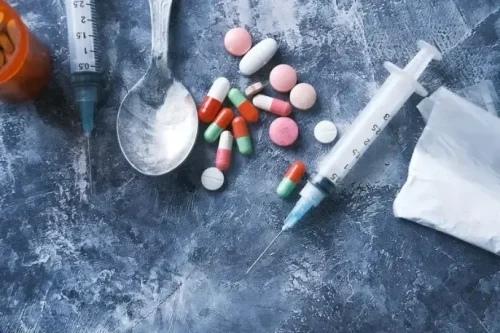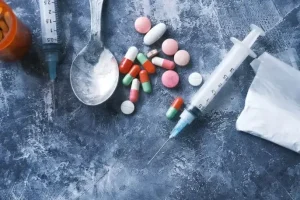Delirium Tremens: What It Is, Causes, Symptoms & Treatment

If your shakes last longer than 24 hours, or if you’re concerned that they might be a sign of withdrawal, it’s best to talk with a healthcare professional as soon as possible. Others report experiencing hangover shakes in their arms, eyes, head, and even their voice. Friends and family are valuable tools for helping you stay alcohol-free and reduce tremors. The more time you spend with people encouraging your alcohol-free lifestyle, the better your chance of successful recovery. Remember, seeking medical assistance is crucial for a comprehensive evaluation and tailored treatment plan. Healthcare professionals can provide the necessary support and resources to address alcohol dependency effectively and promote recovery.
Outpatient Treatment

In such cases, most treatment centers will have qualified staff available to administer medications. Though rare, DT is always a possibility, especially for drinkers who would drink from morning till bedtime. When such a drinker ceases use of alcohol, he needs monitoring because the DTs are not likely to begin until 48 to 72 hours after he caps the bottle. The DTs include severe symptoms such as seizures, hallucinations, delusions, extremely high blood pressure, and sometimes death.

Treatment Options for Alcohol Tremors
The alcohol shakes are a condition that arises when one is engaged in a period of heavy drinking and then suddenly stops. During the period of intoxication, the neurotransmitter gamma-aminobutyric acid (GABA) is inhibited and the body begins to rely on alcohol to maintain homeostasis. Then, when the drinks stop flowing, the body is sent into a state of alarm. The alcoholic can then lose control over certain muscle groups, primarily in the hands, while the body reintroduces the suppressed neurotransmitter.
What is the significance of aftercare in managing alcohol shakes?
- The individual’s overall health, the presence of co-existing medical conditions, and the effectiveness of the treatment plan also significantly influence the longevity of alcohol shakes.
- It typically occurs when alcohol intake is abruptly reduced or stopped after a period of heavy drinking.
- Aftercare is a vital component of the recovery process for individuals experiencing alcohol shakes, as it provides continued support and resources necessary for long-term sobriety and health.
- She has strong communication skills, compassion for others, and a drive to provide the best services we can to each client and their family throughout their experience with Elevate.
Remember, the best way to prevent hangover shakes is to drink alcohol in moderation or avoid it altogether. They can provide guidance, support, and potentially recommend treatments or interventions to help manage your alcohol consumption. Alcohol shakes, also known as alcohol tremors, can be a sign of alcohol withdrawal. These shakes typically occur as quickly as 8 hours after the last drink, as the brain is flooded with more activity when alcohol leaves the body of a heavy drinker 2. Heavy drinking can lead to the brain becoming accustomed to a reduced level of stimulation. As alcohol leaves the body, the nervous system may become hyperactive, resulting in alcohol tremors or shakes 2.
How To Treat Alcohol Tremors

In the case of alcoholic withdrawal, addicts experience extremely high blood pressure, hallucinations, and often violent shakes. He utilizes positive psychology as much as possible during his counseling sessions. Positive psychology is a treatment approach that believes all people want to lead fulfilling and meaningful personal and professional lives. His primary strengths include clinical insight into substance abuse/mental health, hard work ethic, and ability to work well under pressure.
Treatment for Alcohol Shakes and Tremors
- Whatever recovery option you choose, it is important to have medical supervision.
- That is, if the alcoholic is drinking to excess on a daily basis, they might try to taper off.
- Alcohol shakes may be uncontrollable or painful, but this can vary from person to person.
- Alcohol tremors are a response to alcohol withdrawal or alcohol use disorder/alcoholism.
- Their collective expertise shines through in each article, offering readers valuable guidance, the latest in addiction science, and inspiring stories of healing and transformation.
- Whether persistent shakes or a loss of control, recovery starts with a single step.
- Lisa is a Licensed Marriage and Family Therapist with over 25 years of clinical experience working in the field of addiction treatment and mental health stabilization and care.
Medical supervision, behavioral health treatment, and mutual-aid groups can help you through alcohol withdrawal and stay stopped. Behavioral treatment programs are helpful for people who want to quit drinking. These programs involve working with a team of mental health professionals in a group and individual setting.

- You may also verify your insurance, ask questions, or schedule an intake assessment.
- “At Shake Shack, we’re always looking for new and innovative ways to meet our guests where they are, even at 35,000 feet,” Michael Kark, President of Global Licensing at Shake Shack, added.
This is the period in which delirium tremens is most likely to occur, which requires immediate medical attention. During the 12- to 24-hour time frame after the last drink, most people will begin to have noticeable symptoms. These may still be mild, or the existing symptoms might increase in severity. If you or someone you know shows signs of delirium tremens, go to the emergency room immediately. Because of these symptoms, you won’t be able alcoholic shakes to make decisions about your medical care.
Understanding Shaking After Drinking

This can help them determine your symptoms and measure the severity of your withdrawal. A score of 15 or higher means you’re at high risk for delirium tremens. If you are going to have delirium tremens, usually symptoms start between 2 and 4 days after your last drink. However, some symptoms may not show up until up to 10 days after you give up alcohol.
Family’s Role in Supporting Treatment
There is no exact timeline for alcohol withdrawal, and individual factors, such as the level of dependence on alcohol, will influence it. Many people with DTs also have dehydration, electrolyte imbalances or mineral deficiencies. Your healthcare provider can treat these by infusing you (through an IV in your vein) with the necessary vitamins and minerals.
